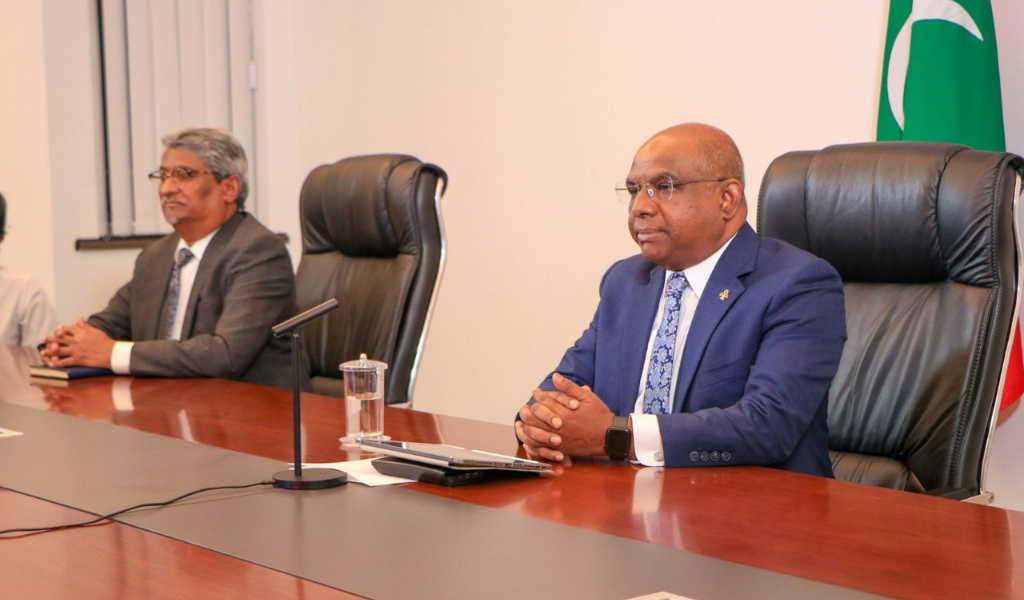
Foreign Minister Shahid Attends The Virtual COVID-19 Global Action Plan Ministerial Meeting
On Wednesday, the Minister of Foreign Affairs of the Maldives, Abdulla Shahid attended and delivered his remarks at the virtual COVID-19 Global Action Plan Ministerial Meeting. The Ministerial Meeting was hosted by the Secretary of State of the United States of America, Antony Blinken during the hours of yesterday.
When delivering his remarks, Minister Shahid reflected on the accomplishments of the GAP initiative, which was crucial in securing equitable distribution of vaccines to vulnerable countries during the height of the Covid-19 pandemic. Moreover, it ensured that mechanisms were implemented for vaccines to be administered in such countries as well.
Shedding light on the importance of prevention, detection and response to future pandemics, Minister Shahid underscored the significance of progressing forward and supporting and closing the booster gap. On this note, he emphasized the vaccination of vulnerable and high-risk individuals within the population and diversifying the production of vaccines. Furthermore, Minister Shahid also called on to actively support new platforms and producers of vaccines as well as investments in anti-viral medicines.
Briefing the partners on measures taken by the Government of Maldives, the Minister informed that 85% of the resident population in the country including locals and expatriates are now vaccinated with no discrimination towards their status or origin. He concluded his statement by thanking Secretary Blinken and the Government of the United States of America for their leadership in this initiative and other country partners and organizations for swiftly formalizing assistance mechanisms to manage the continuing impacts of the pandemic, particularly in vulnerable countries.
The GAP partners convened to assess the work done by GAP and determine the remaining barriers to curb the acute phase of the COVID-19 pandemic. The partners will also be reflecting on lessons learned during the pandemic to drive future collaboration and respond more effectively to global health security threats in the future.